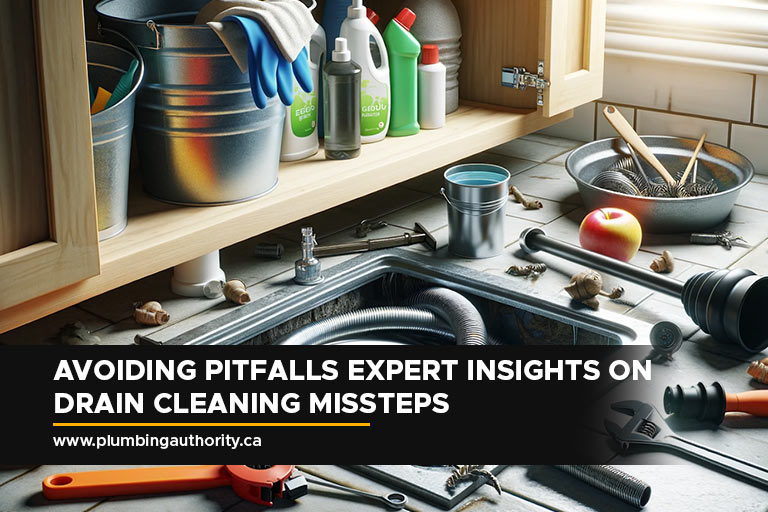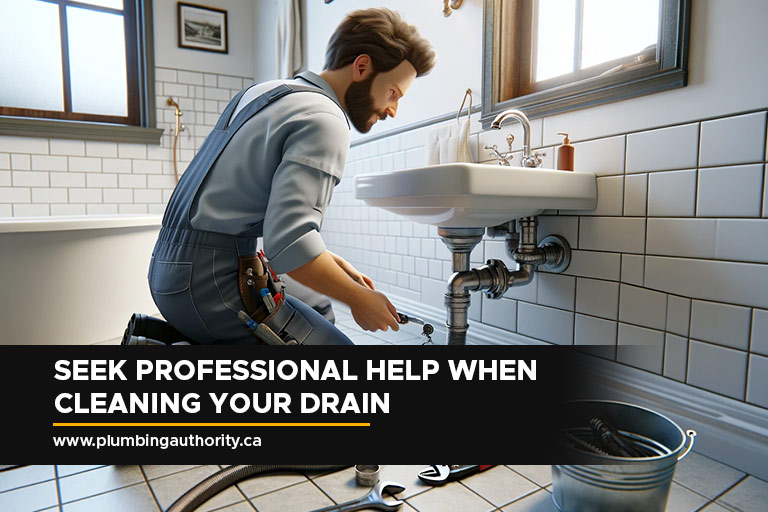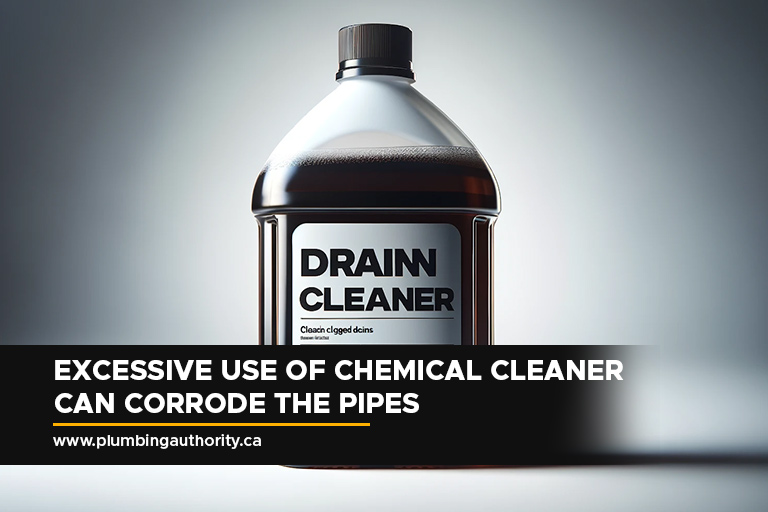
Drain maintenance, a vital yet often neglected component of home upkeep, plays a crucial role in ensuring the health and efficiency of our plumbing systems. Many homeowners tend to overlook the importance of regular drain cleaning, only to face the consequences when the plumbing system fails. Without proper care and regular cleaning, these drainage systems can become clogged, leading to slow water drainage, unpleasant odours, and in severe cases, backflow of sewage into the home. This not only causes inconvenience but also poses health risks and can lead to costly repairs.
Unfortunately, even during the drain cleaning process, homeowners often unknowingly make mistakes that exacerbate existing problems or create new ones. From ignoring the early signs of a clog to the use of inappropriate tools or methods, these practices highlight a gap in understanding the proper techniques for drain maintenance and the importance of professional intervention when necessary. Here’s what you need to know about drain cleaning and the common mistakes you may be making.
Common Drain Cleaning Mistakes

- Overusing Chemical Cleaners
Chemical drain cleaners, despite their quick solution to unclog drains, can harm plumbing systems due to their harsh chemicals like sodium hydroxide or sulfuric acid. These chemicals can erode pipes, especially in older or PVC systems, leading to leaks, weakening joints, and even causing pipes to burst, requiring costly repairs.
- Using Improper Tools
Using makeshift tools like coat hangers or sticks for DIY drain maintenance can be damaging. Such tools are not designed for plumbing and can scratch the interior surface of pipes, or worse, they can puncture the pipes. These tools also lack the flexibility and reach of professional equipment, pushing blockages deeper into the system and making them harder to remove.
- Forcing Clogs
Excessive force used to clear blockages in plumbing systems can significantly damage the system, breaking seals between pipes and causing leaks. This is especially dangerous in older homes where plumbing is more fragile, as it can cause immediate damage and escalate a clog into a plumbing emergency.
- Flushing Non-Flushable Items
Blockages often occur due to flushing items not intended for toilet disposal, such as wet wipes, feminine hygiene products, paper towels, and flushable wipes. These items can easily get caught in the plumbing system, leading to severe blockages. They can also cause issues downstream the sewage line and contribute to larger blockages affecting entire neighbourhoods.
- Misusing Plumbing Vents
Plumbing vents are crucial for regulating air pressure and water flow in plumbing systems. Blocking, modifying, or covering them can cause significant drainage issues. Blockages disrupt air pressure, leading to slow drainage and potential blockages. Inadequate airflow can also cause sewer gases to seep into homes, causing unpleasant odours.
Drain Cleaning Tips

Excessive use of chemical cleaner can corrode the pipes
- Regular Check-ups
Scheduling regular inspections with a professional plumber can prevent minor issues from escalating into major problems. Professionals possess the expertise to detect early signs of clogs, pipe corrosion, or other potential issues that might not be obvious to the untrained eye. These check-ups often involve the use of specialized equipment, such as cameras to inspect internal pipe conditions.
- Use a Strainer
Installing strainers in sinks and showers is a simple yet effective method to prevent debris from clogging drains. These strainers act as a barrier, catching solid particles while allowing water to flow. Regular cleaning is necessary to maintain their effectiveness and reduce blockages, ensuring a smooth and efficient drainage system.
- Boiling Water
Boiling water regularly is a simple and effective method for maintaining clear pipes, as it dissolves soap scum, grease, and oils commonly found in kitchen pipes. However, caution is needed when using boiling water on PVC pipes, as boiling water can sometimes damage them. Instead, use hot water, not boiling water, to avoid potential harm.
- Baking Soda and Vinegar
Baking soda and vinegar are a natural, eco-friendly solution for removing minor clogs and deodorizing drains. To use, pour half a cup of baking soda and an equal amount of vinegar down the drain, cover it, let it sit for an hour, and flush with hot water. This method is safe for most pipes and can be used regularly for clean, fresh-smelling drains.
- Plunger Use
Proper technique is crucial when using a plunger to dislodge minor clogs. Create a firm seal over the drain and apply steady plunges to create pressure in pipes. Avoid excessive force to avoid damaging pipes or joints. Use the right type of plunger, such as a cup plunger for sinks and a flange plunger for toilets, for optimal effectiveness.
- Avoid Chemical Cleaners
Chemical drain cleaners should be used sparingly, as they contain harsh substances that can corrode pipes over time. Frequent use of these cleaners can weaken pipes, leading to leaks and other plumbing issues. If you must use a chemical cleaner, follow the instructions carefully and use it only as a last resort.
- Snake the Drain
For tougher clogs that can’t be resolved with plunging or natural remedies, a plumber’s snake, or drain auger, is a more effective and safer solution for clogged drains. This tool can reach deep into the pipes to remove blockages without damaging the pipes. While manual snakes are available for home use, professional-grade snakes used by plumbers are more effective for severe clogs.
- Dispose of Waste Properly
Proper disposal of waste plays a critical role in maintaining clear drains. Avoid flushing anything down the toilet except for human waste and toilet paper, which are designed to disintegrate in water. In the kitchen, avoid pouring grease, oil, and food scraps down the sink. These materials can solidify in the pipes, causing blockages. Instead, dispose of them in the trash or a compost bin.
- Seek Professional Advice
For persistent or complex drainage issues, consulting a professional plumber is advisable. They have the expertise, experience, and tools to diagnose and resolve plumbing issues safely and effectively. They can also provide valuable advice on maintaining your plumbing system and preventing future problems. Seeking professional drain services help can save time, money, and the hassle of dealing with recurring or severe drainage issues.
Effective drain cleaning is not just about fixing clogs but also about preventing them. By avoiding common mistakes and following these tips, you can maintain a healthy drainage system. When faced with stubborn or recurring issues, it’s best to seek professional help.
For expert drain service in Bolton, contact Plumbing Authority at (647) 992-7473. Our team of skilled professionals is ready to assist with any drain concerns you may have. Remember, proactive maintenance is key to preventing drain problems before they escalate.




